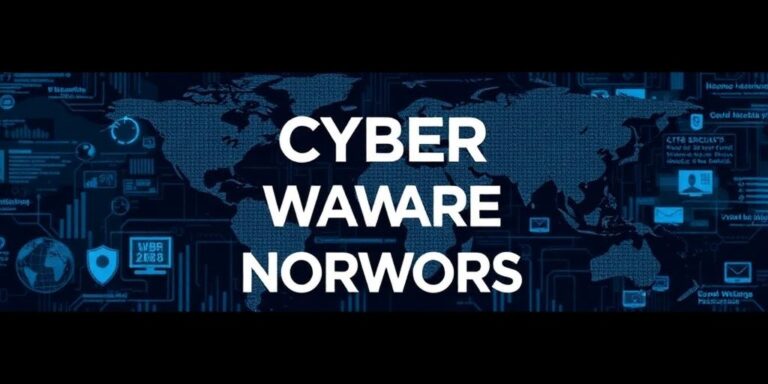International Norms for Cyber Warfare: Are They Possible by 2028?
The digital age has ushered in a new era of conflict: cyber warfare. As nations increasingly rely on interconnected systems, the potential for disruption and damage through cyberattacks grows exponentially. The question of establishing international norms to govern state behavior in cyberspace has become a critical concern. Can the global community forge a consensus on acceptable and unacceptable actions in the digital realm by 2028?
The Current Landscape of Cyber Warfare
Cyber warfare encompasses a range of activities, from espionage and sabotage to the disruption of critical infrastructure. Unlike traditional warfare, cyberattacks can be launched from anywhere in the world, often with a degree of anonymity that makes attribution difficult. This ambiguity complicates the application of existing international laws and norms.
Challenges in Establishing International Norms
Several factors impede the development of universally accepted norms for cyber warfare:
- Defining Cyber Warfare: There is no universally agreed-upon definition of what constitutes an act of cyber warfare. Differentiating between espionage, which states often consider legitimate, and an act of aggression is challenging.
- Attribution: Identifying the perpetrator of a cyberattack is technically difficult. Attackers can route their activities through multiple servers and hide their true location, making it hard to hold states accountable for their actions.
- Sovereignty: Nations are hesitant to cede control over their cyber capabilities. Many states view cyber tools as essential for national security and are unwilling to accept constraints on their use.
- Dual-Use Technologies: Many technologies used in cyberattacks also have legitimate civilian applications. Regulating these technologies is difficult without hindering innovation and economic development.
Potential Pathways to Norm Development
Despite these challenges, there are several pathways through which international norms for cyber warfare could emerge by 2028:
- Multilateral Agreements: The United Nations and other international organizations can serve as forums for negotiating and establishing international agreements on cyber warfare. The UN Group of Governmental Experts (GGE) on Developments in the Field of Information and Telecommunications in the Context of International Security has been working on this issue for years, but progress has been slow.
- Bilateral and Regional Agreements: Individual nations or groups of nations can enter into agreements to regulate cyber activities. These agreements can serve as building blocks for broader international norms.
- Soft Law and Voluntary Commitments: States can adopt non-binding principles and guidelines for responsible behavior in cyberspace. These “soft law” instruments can help to shape expectations and encourage states to act responsibly.
- Industry Standards: The private sector plays a crucial role in cybersecurity. Industry-led initiatives to develop and implement security standards can contribute to the development of norms.
Key Areas for Norm Development
To be effective, international norms for cyber warfare must address several key areas:
- Protection of Critical Infrastructure: Norms should prohibit attacks on essential services such as power grids, hospitals, and financial systems.
- Prohibition of Cyber Espionage for Commercial Gain: States should agree not to use cyber espionage to steal trade secrets or gain an unfair competitive advantage.
- Due Diligence: States should take reasonable steps to prevent their territory from being used to launch cyberattacks against other nations.
- Respect for Human Rights: Norms should ensure that human rights, such as freedom of expression and privacy, are protected in cyberspace.
The Role of Technology
Technological developments will also play a crucial role in shaping the future of cyber warfare norms. Advances in artificial intelligence, machine learning, and blockchain technology could help to improve attribution and enhance cybersecurity. However, these technologies could also be used to develop more sophisticated cyber weapons, further complicating the challenge of establishing norms.
Conclusion
The establishment of international norms for cyber warfare by 2028 is an ambitious but achievable goal. Success will require sustained effort from governments, international organizations, the private sector, and civil society. By working together, the global community can create a more secure and stable cyberspace for all.
Long-Tail Keywords:
- International law cyber warfare
- Cyber warfare norms 2028
- Cybersecurity international agreements
- UN cyber warfare regulations
- Defining cyber warfare acts




